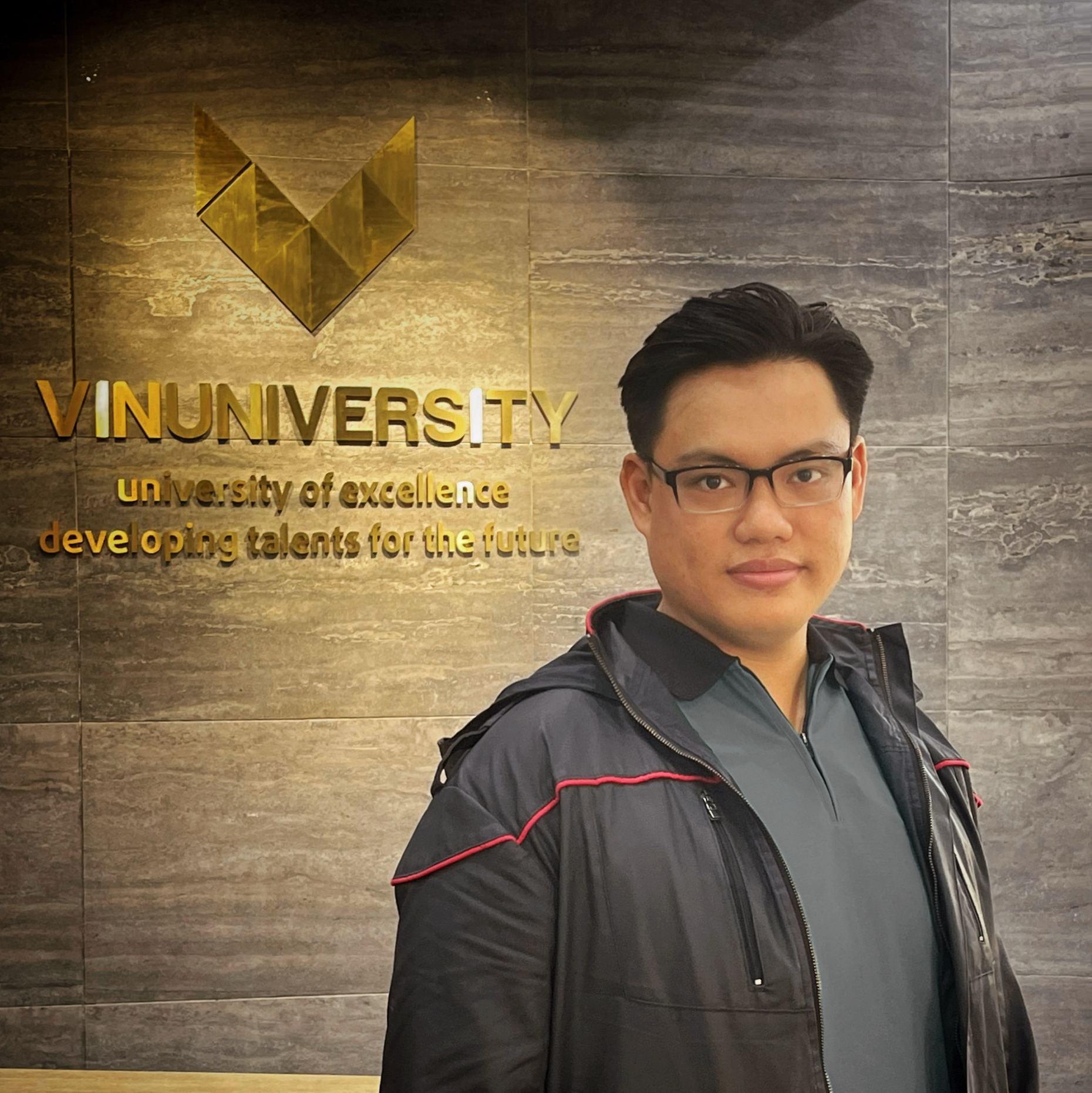
I am currently a second-year Ph.D. student in Computer Science at the Ohio State University, supervised by Prof. Wei-Lun Chao. I am generally interested in machine learning and computer vision for open-world machine learning with imperfect data.
I obtained my bachelor degree in Computer Engineering at University of Information Technology, Vietnam National University Ho Chi Minh City in late 2020. From 2022 to 2024, I was a research assistant at VinUni-Illinois Smart Health Center (VISHC), College of Engineering and Computer Science, VinUni, and AI research resident at FPT Software AI Residency, mentored by Prof Dung D. Le (VinUniversity).
My email: nguyen.2959@osu.edu
I am interested in meta-learning, uncertainty estimation, and domain adaptation for machine learning and computer vision. In particular, my research focuses on learning with imperfect data (e.g., limited, noisy, or imbalanced) under minimal human supervision, while enabling effective extrapolation and adaptation to unseen domains beyond the training set. Application-wise, I am working on medical imaging and animal behavior analysis, where handling limited data with minimal supervision is vital.
Additionally, I am also interested in eploring the intersection of black-box optimization and uncertainty estimation to advance lifelong and open-world learning systems.
Details of my research interests are discussed here.
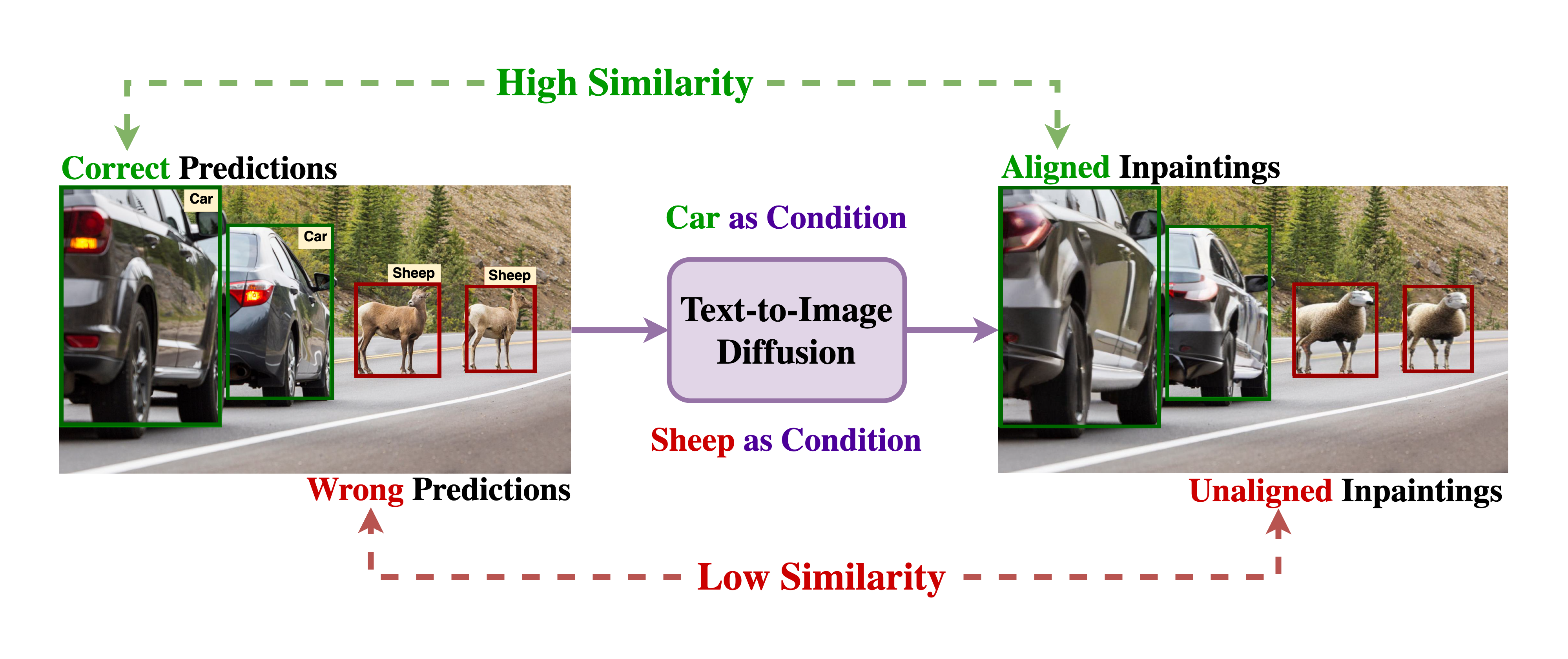
Detecting Out-of-Distribution Objects through Class-Conditioned Inpainting
Quang-Huy Nguyen*, Jin Zhou*, Zhenzhen Liu*, Huyen Bui, Kilian Q. Weinberger, Wei-Lun Chao, Dung D. Le
WACV, 2026
We address OOD Object Detection by leveraging the inconsistency between generative and discriminative model outputs. We employ an off-the-shelf generative model as an auxiliary to the object detector and introduce a triplet similarity metric that captures both semantic and visual differences, enabling effective OOD object dection in the zero-shot manner.
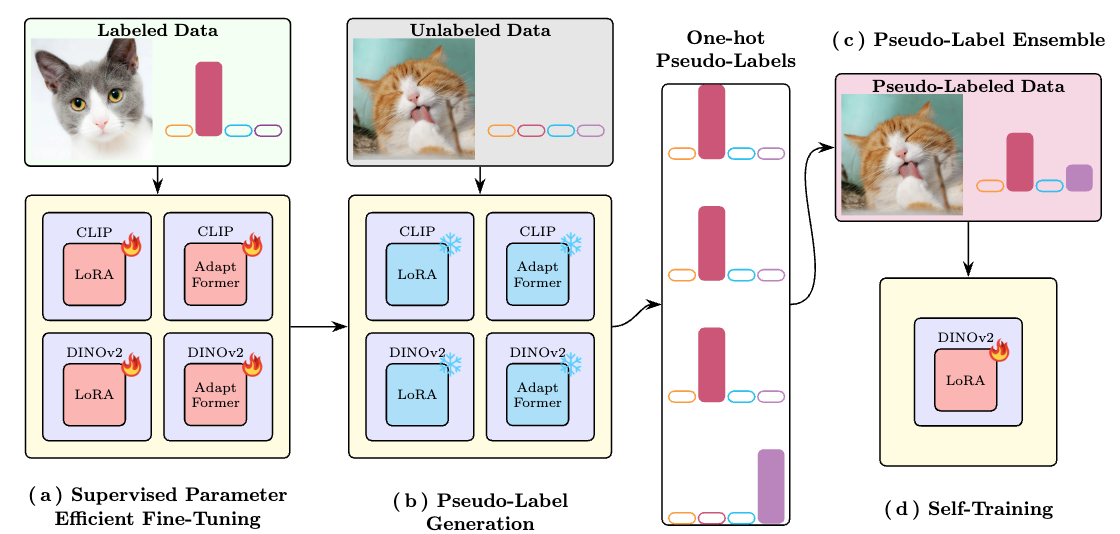
Revisiting Semi-Supervised Learning in the Era of Foundation Models
Zheda Mai*, Ping Zhang*, Quang-Huy Nguyen, Wei-Lun Chao
NeurIPS, 2025
We present a comprehensive study on Semi-Supervised Learning (SSL) using Vision Foundation Models (VFMs) and propose a simple yet effective baseline that leverages diverse predictions from multiple Parameter-Efficient Fine-Tuning (PEFT) strategies to enhance SSL performance.
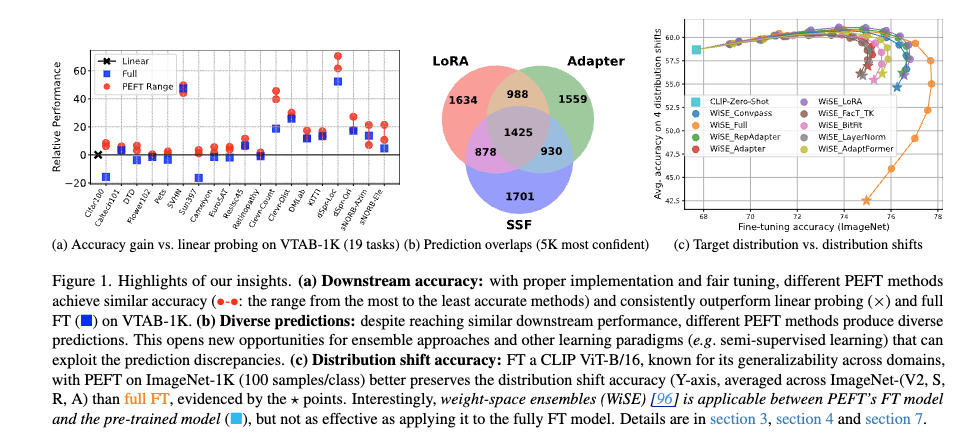
Lessons and Insights from a Unifying Study of Parameter-Efficient Fine-Tuning (PEFT) in Visual Recognition
Zheda Mai, Ping Zhang, Cheng-Hao Tu, Hong-You Chen, Quang-Huy Nguyen, Li Zhang, Wei-Lun Chao
CVPR, 2025 Highlight (2.98%).
We present a unified empirical study of Parameter-Efficient Fine-Tuning (PEFT) methods in visual recognition, offering complementary perspectives to deeply understand their behaviors under different regimes (low-shot, many-shot, domain shift), and highlight their complementary predictions and robustness trade-offs.
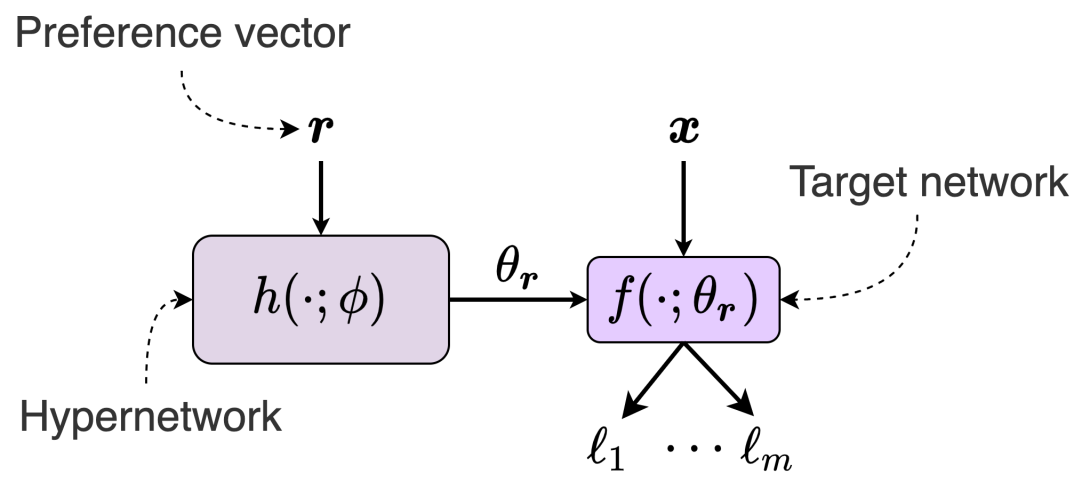
Improving Pareto Set Learning for Expensive Multi-objective Optimization via Stein Variational Hypernetworks
Minh-Duc Nguyen, Phuong Mai Dinh, Quang-Huy Nguyen, Long P. Hoang, Dung D. Le
AAAI, 2025
We investigate Expensive Multi-Objective Optimization by introducing the Stein Variational Hypernetwork for Pareto Set Learning, which alleviates fragmented and uncertain regions in surrogate models while preserving the diversity of learned solutions, demonstrating strong performance on expensive multi-objective optimization problems.
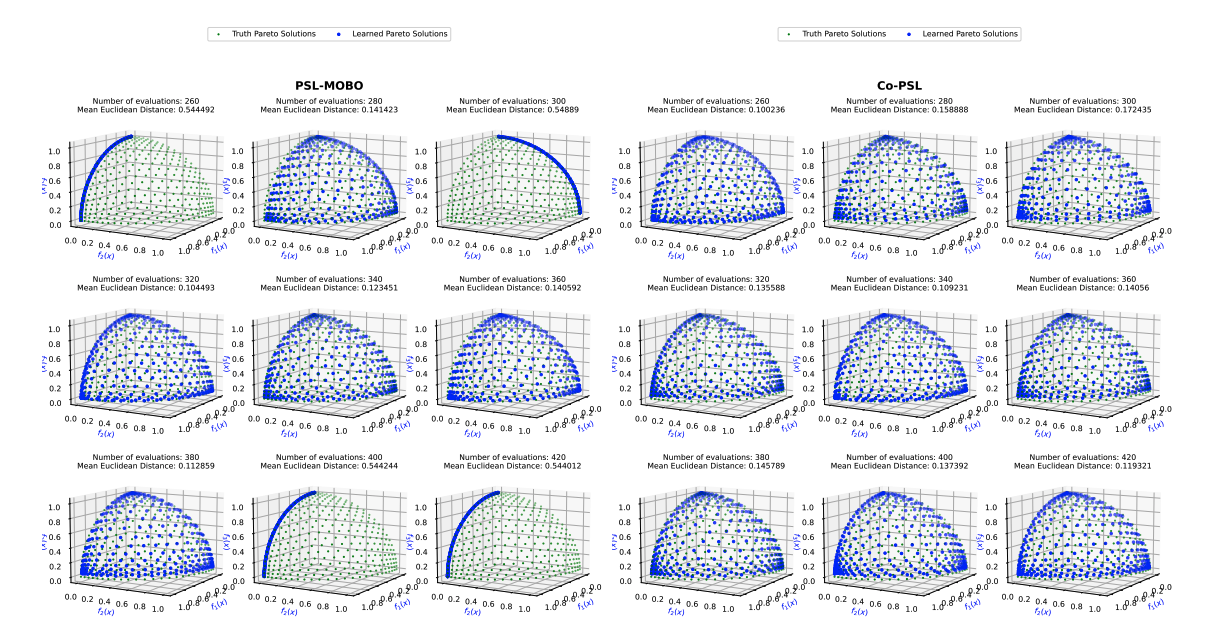
Controllable Expensive Multi-objective Learning with Warm-starting Bayesian Optimization
Quang-Huy Nguyen*, Long P. Hoang*, Hoang V. Vu, Dung D. Le
Preprint, 2024
We explore Multi-Objective Black-Box Optimization through Pareto Front Learning, aligning trade-off preferences with their corresponding optimal solutions across conflicting objectives. To achieve this, we warm-start the Gaussian Process to obtain an accurate initial approximation of the Pareto front, and reinitialize the Pareto Set Model during optimization steps to stabilize the learning process.
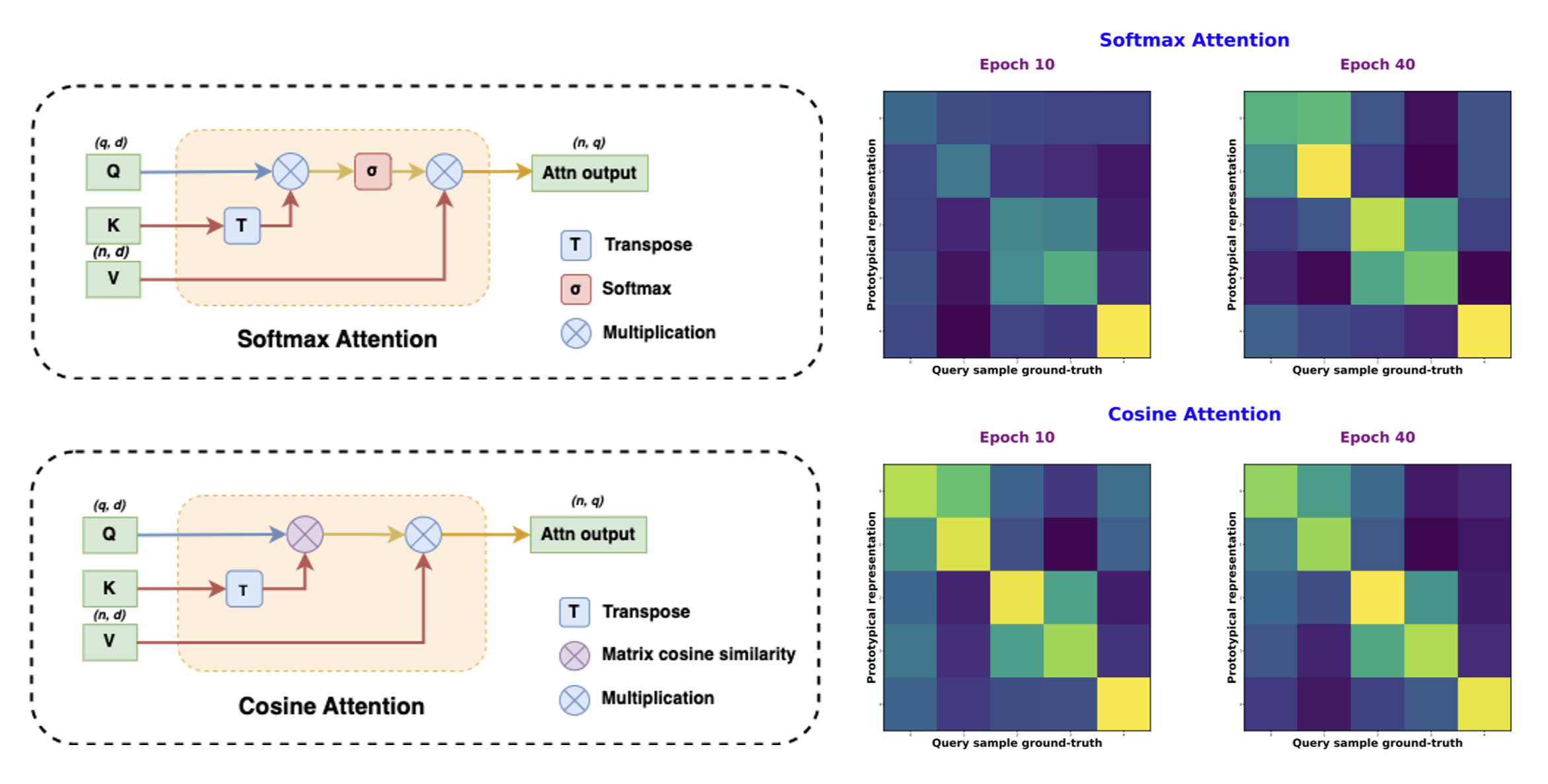
Enhancing Few-shot Image Classification with Cosine Transformer
Quang-Huy Nguyen, Cuong Q. Nguyen, Dung D. Le, Hieu H. Pham
IEEE Access, 2023
We explore Few-shot Image Classification by proposing a new cross-attention mechanism based on cosine similarity, without using softmax, to further emphasizes the correlation between labeled supports and unlabeled query representations, thus enhancing ViT-based few-shot algorithms across various settings and scenarios compare to convention attention mechanism.
Nov, 2025: Our paper Detecting Out-of-Distribution Objects through Class-Conditioned Inpainting is accepted at WACV 2026.
Sep, 2025: Our paper Revisiting Semi-Supervised Learning in the Era of Foundation Models is accepted at NeurIPS 2025.
Apr, 2025: Our paper Lessons and Insights from a Unifying Study of Parameter-Efficient Fine-Tuning (PEFT) in Visual Recognition is accepted at CVPR 2025 as Highlight.
Dec, 2024: Our paper Improving Pareto Set Learning for Expensive Multi-objective Optimization via Stein Variational Hypernetworks is accepted at AAAI 2025.
Aug, 2024: I become PhD student in Computer Science and Enginering at the Ohio State University, advised by Prof. Wei-Lun (Harry) Chao.
Aug, 2023: I participate in the 10th Vietname Summer School of Science at International Centre for Interdisciplinary Science and Education, Quy Nhon, Vietnam.
Aug, 2023: I become AI Research Resident at FPTSoftware AI Center, Ho Chi Minh City.
Jul, 2023: Our paper Few-shot Cosine Transformer is accepted at IEEE Access.
Feb, 2023: I become Research Assistant at College of Engineering and Computer Science, VinUniversity.
Jan, 2022: I become Research Assistant at VinUni-Illinois Smart Health Center (VISHC), VinUniversity.
Dec, 2020: I obtain a Bachelor degree in Computer Engineering at University of Information Technology, VNU-HCM.
Jul, 2019: I become Research Assistant at Faculty of Computer Engineering, University of Information Technology, VNU-HCM.